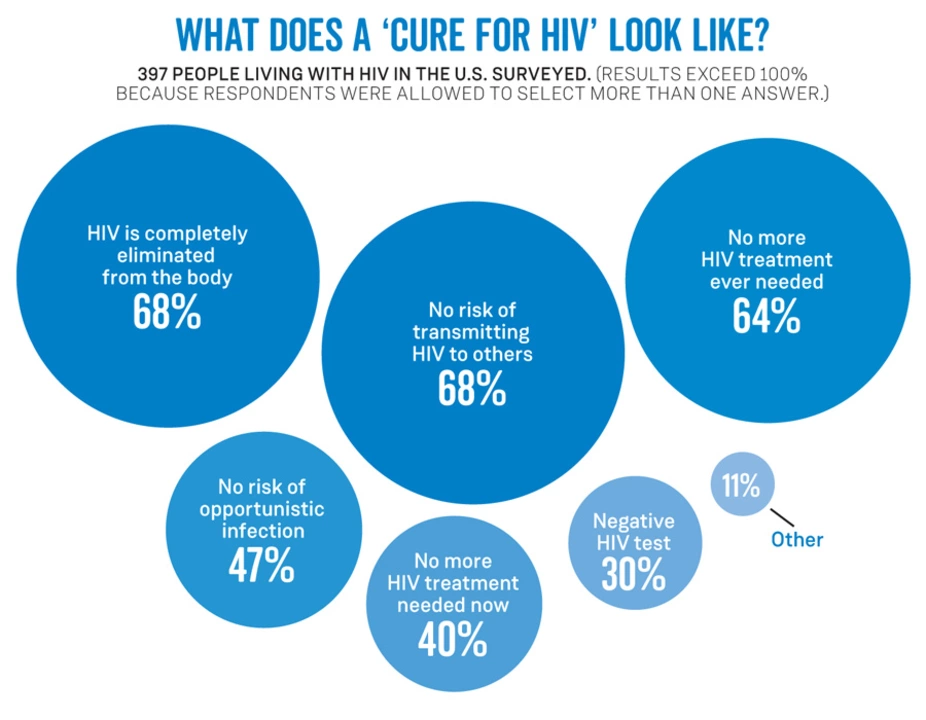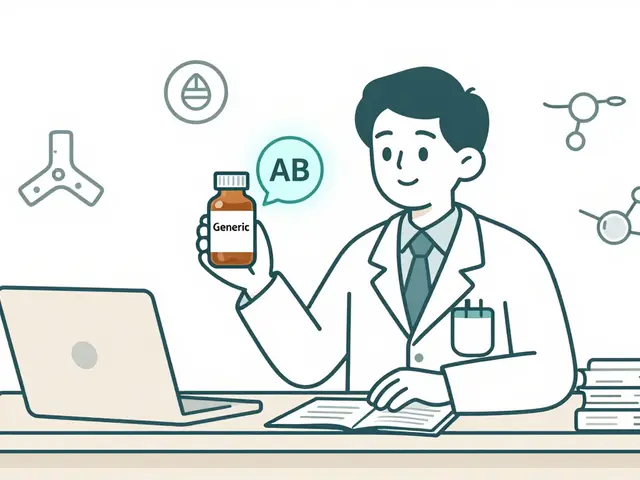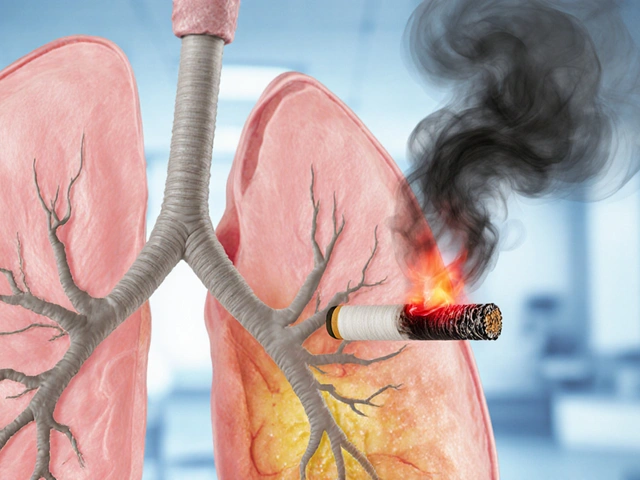Understanding Didanosine and Its Role in HIV Treatment
Didanosine is an important medication for people living with HIV, as it helps to slow down the progression of the virus in the body. In this section, we'll dive into the basics of didanosine, how it works, and why it's a crucial part of HIV treatment. By understanding the role of didanosine in managing HIV, we can better appreciate its impact on emotional well-being.
Didanosine is an antiretroviral medication, which means it targets and inhibits the replication of the HIV virus within the body. It belongs to a class of drugs called nucleoside reverse transcriptase inhibitors (NRTIs). These medications work by blocking the enzyme reverse transcriptase, which the virus needs in order to reproduce itself. By doing so, didanosine helps to reduce the viral load (the amount of virus in the blood) and allows the immune system to recover and regain strength.
How Emotional Well-Being Is Affected by HIV
Living with HIV can be emotionally challenging, as it often comes with a range of difficult emotions, including fear, anxiety, depression, and feelings of isolation. The stigma surrounding HIV can also exacerbate these feelings, making it harder for those living with the virus to seek the support they need. In this section, we'll explore the various ways in which HIV can impact emotional well-being, and how didanosine can play a role in addressing these challenges.
Firstly, the diagnosis of HIV can be a major emotional shock, as it forces individuals to confront their own mortality and the possibility of a shortened life expectancy. This can lead to feelings of anger, denial, and sadness. Additionally, the physical symptoms of HIV, such as fatigue, pain, and other discomforts, can also have a significant impact on emotional well-being. Managing these symptoms and the uncertainty of living with a chronic illness can be a constant source of stress and anxiety.
Finding Emotional Relief Through Didanosine
As mentioned earlier, didanosine is a crucial medication in the fight against HIV, helping to manage the progression of the virus and, in turn, improving the physical health of those living with it. This can lead to an overall improvement in emotional well-being, as individuals may feel more in control of their health and optimistic about their future. In this section, we'll explore how taking didanosine can help alleviate some of the emotional challenges associated with living with HIV.
By reducing the viral load and allowing the immune system to recover, didanosine can lead to a noticeable improvement in physical health. This can help to alleviate some of the physical symptoms associated with HIV, such as fatigue and pain, which in turn can have a positive effect on emotional well-being. Furthermore, as individuals begin to feel better physically, they may also feel more in control of their lives and better able to cope with the challenges of living with HIV.
Didanosine's Role in Alleviating HIV-Related Anxiety
Anxiety is a common emotion experienced by those living with HIV, as the uncertainty surrounding the future and the potential for health complications can be a constant source of worry. In this section, we'll discuss how didanosine can help to alleviate some of this anxiety by providing a sense of stability and control over the virus.
By effectively managing the progression of HIV, didanosine can provide individuals with a sense of control over their illness. This can help to alleviate some of the anxiety associated with the uncertainty of living with a chronic condition. Additionally, as didanosine is part of a larger treatment plan for managing HIV, it can provide individuals with a sense of hope for the future, knowing that they are actively taking steps to protect their health and prolong their lives.
Addressing Depression with Didanosine
Depression is another common emotional challenge faced by those living with HIV, as the physical and emotional toll of the virus can leave individuals feeling overwhelmed and hopeless. In this section, we'll explore how didanosine can play a role in addressing depression and improving overall emotional well-being.
As didanosine helps to manage the physical symptoms of HIV and improve overall health, it can also help to address some of the factors that contribute to depression. By feeling more in control of their health and experiencing an improvement in physical symptoms, individuals may be more likely to engage in activities they enjoy and seek out social connections, both of which can have a positive impact on overall mood and emotional well-being.
Didanosine and Its Impact on Social Isolation
Social isolation is often experienced by those living with HIV, as the stigma surrounding the virus can lead to feelings of shame and a reluctance to seek out support. In this section, we'll discuss how didanosine can help to address social isolation by improving both physical and emotional well-being.
As individuals begin to feel better physically and emotionally as a result of taking didanosine, they may be more likely to seek out social connections and support. This can lead to a reduction in feelings of isolation and an improvement in overall emotional well-being. Furthermore, by being open about their diagnosis and the positive impact of didanosine on their health, individuals can help to break down the stigma surrounding HIV and create more understanding and acceptance within their communities.
Conclusion: The Positive Impact of Didanosine on Emotional Well-Being
In conclusion, didanosine plays a crucial role in improving the emotional well-being of those living with HIV. By effectively managing the progression of the virus and improving overall physical health, individuals can experience a greater sense of control, hope, and optimism about their future. This, in turn, can lead to a reduction in anxiety, depression, and social isolation, ultimately resulting in a better quality of life for those living with HIV.
As we continue to fight against HIV and work towards finding a cure, it's important to recognize the significant impact that medications like didanosine can have on the emotional well-being of those affected by the virus. By understanding this impact, we can better support and care for those living with HIV and help them lead fulfilling, healthy lives.






Abha Nakra
I've been on didanosine for over 5 years now. Honestly, it didn't fix everything, but it gave me back the ability to sleep through the night without panic attacks. That alone changed my life. I started volunteering at a local HIV support group, and now I help new folks navigate the emotional chaos. You don't need to be cured to find peace.
Neal Burton
This article reads like a pharmaceutical pamphlet disguised as personal insight. Didanosine is an outdated NRTI with a toxicity profile that would make a toxicologist flinch. The emotional benefits are anecdotal at best and statistically insignificant in modern ART regimens. Why are we still romanticizing obsolete drugs?
Tamara Kayali Browne
The author conflates correlation with causation. Improved physical health does not automatically translate to improved emotional well-being. A 2018 meta-analysis in The Lancet HIV showed no significant difference in PHQ-9 scores between patients on didanosine versus tenofovir-based regimens. Emotional outcomes are mediated by socioeconomic factors, not antiretrovirals.
Nishigandha Kanurkar
Didanosine is a trap!! The pharmaceutical industry pushed it because it's profitable!! They know it causes lactic acidosis and neuropathy but they hide it!! Your doctor is paid by Big Pharma!! They want you dependent!! Don't trust the system!!
Lori Johnson
I just wanted to say I get it. I was diagnosed 12 years ago and I was so scared I didn't tell anyone. Then I started on didanosine and slowly, I started going out again. Not because I was cured, but because I felt like I could breathe. I still have bad days, but now I know I'm not alone. You're not broken. You're adapting.
Tatiana Mathis
It's important to acknowledge that while didanosine has been largely superseded by newer antiretrovirals with better safety profiles, its historical role in enabling long-term survival cannot be understated. For many in the pre-2000s era, it was the difference between a terminal diagnosis and a chronic condition. The emotional relief described here is real for those who lived through that era - it wasn't just about viral suppression; it was about reclaiming agency over a body that society had declared disposable.
Michelle Lyons
Didanosine was part of the government's secret mind control program. They use the virus to track people, and the meds are just a cover. I know because my neighbor's cousin's roommate works at the CDC and said they inject microchips in the pills. That's why the side effects are so weird - it's not the drug, it's the tracking. You think you're feeling better? You're just being conditioned.
Cornelle Camberos
The romanticization of didanosine as a panacea for emotional distress is both scientifically inaccurate and ethically irresponsible. The drug carries a black box warning for pancreatitis and peripheral neuropathy. To suggest it improves psychological well-being without addressing its severe adverse effects is to mislead vulnerable populations. Evidence-based medicine demands nuance, not sentimentality.
joe balak
Didanosine worked for me. I didn't need the rest of the article. I'm alive. That's it.
Iván Maceda
I'm not saying the meds don't help... 🤝 but we gotta talk about the real enemy. The stigma. The silence. The fact that people still think HIV = death. Didanosine? It's just a tool. What matters is that we stop treating people like they're contagious with shame. 💪❤️